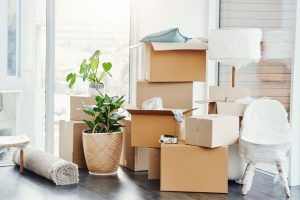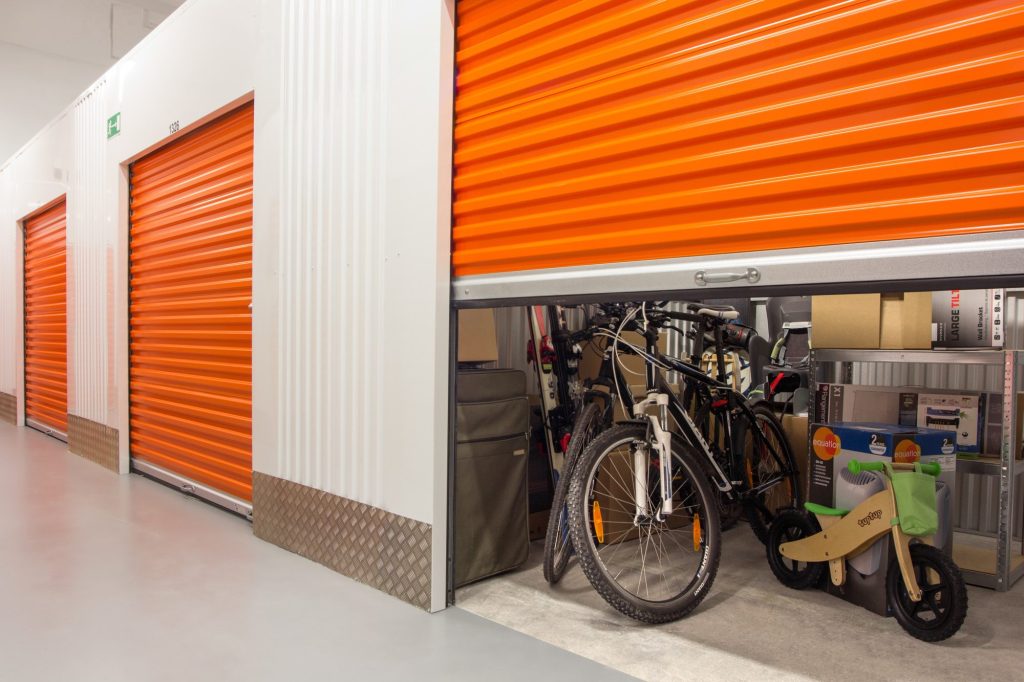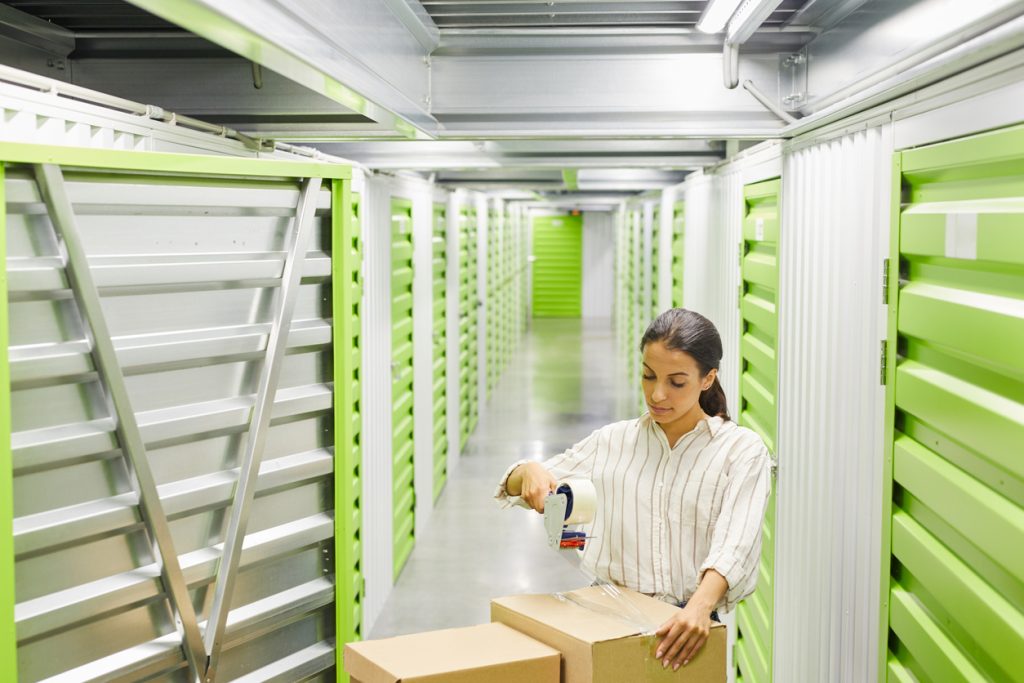When you’ve just moved into a new home, it can feel like there are a hundred different tasks you need to get done – but where do you start? With this new home checklist, we’ve outlined some of the top priorities to address in your first week in your new home.
The first week in a new place can feel like a whirlwind of boxes, to-do lists, and maybe a pizza slice or two (because, let’s face it, who has time to cook?). But amidst the chaos, there are a few things you’ll want to prioritise to make the transition as smooth as possible.
From unpacking your essentials to securing your new space, we’ve got you covered with the top priorities for your first week. Let’s dive in and turn that new house into a cosy, comfortable home.
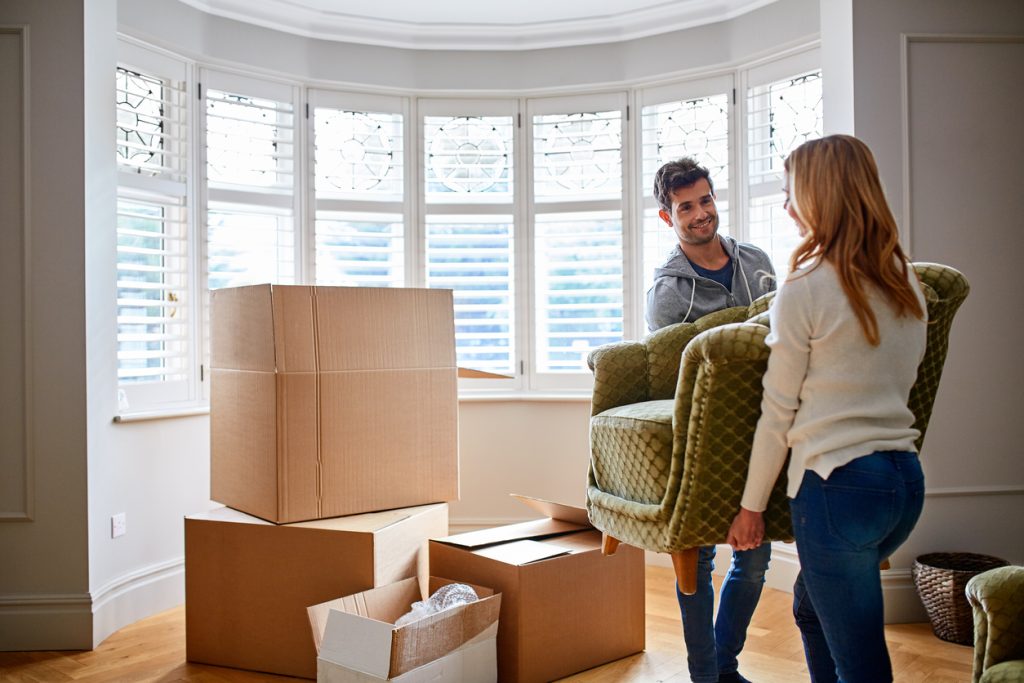
Unpacking Essentials
After the moving truck pulls away and you’re left with a mountain of boxes, knowing where to start can be overwhelming. Here’s the game plan: focus on the essentials first.
If you’ve stored things in self-storage throughout your move (did you know moving home is the number one reason for using self-storage?), you may want to consider what can stay in your self-storage unit, and what you’d like to access sooner.
If you haven’t used self-storage, while setting this up pre-move would have been the best time to do this – the second best time is while your things are still in boxes! We’ve listed the essentials to unpack below – if you’re planning major renovations, you might want to put the majority of your non-essential items in storage to keep them safe out of sight.
1. Bedroom Setup: A good night’s sleep is crucial, especially after a long day of moving. Assemble your bed, unpack the bedding, and make it cozy. Feeling rested will make the rest of the unpacking process much more manageable.
2. Bathroom Basics: Unpack toiletries, towels, and shower curtains next. You’ll want to take that refreshing shower after a day of hard work, so having your bathroom ready is a priority.
3. Kitchen Necessities: Find those boxes marked “kitchen” and get to work setting up the basics. Plates, cups, a pot or two, and silverware should be enough to start. And yes, locating the coffee maker is a top priority for the morning after.
4. Clothing for the Week: You probably won’t get all your clothes organised in the first week, and that’s okay. Unpack enough for the week ahead, so you’re not rummaging through boxes every morning.
5. Critical Documents and Valuables: Make sure you know where your important documents, like birth certificates, passports, and insurance papers, are. Keeping them in a designated, secure spot right from the start is a smart move.
Focusing on these essentials will make your new house feel livable right away and give you the space to tackle the rest of the unpacking at a more leisurely pace.
Not quite ready for your house move yet? Read our moving home checklist first!
Setting Up Utilities and Internet
Once you’ve got your immediate essentials unpacked, it’s time to ensure you’re connected and powered up. Here’s how to tackle it:
1. Utilities Checklist: Make sure all your utilities are up and running. This includes electricity, water, gas, and heating. If you arranged for them to be turned on before you arrived, double-check that everything’s working as it should.
2. Internet Connection: In today’s world, being online is almost as essential as having electricity. Contact your internet service provider (ISP) ahead of time to set up your connection. If it’s already set up, test it to ensure it’s working correctly. A delay in setup can be common, so the sooner you start this process, the better.
3. Emergency Numbers: Locate and list out local emergency contacts, including utilities in case of outages or issues. Having these numbers handy in your phone or on your fridge can save you a lot of stress in an unexpected situation.
4. Familiarise Yourself with Main Controls: Know where your circuit breaker, gas shutoff valve, and main water supply are located. In case of an emergency, you’ll want to know how to turn these off quickly.
Getting these logistical details sorted early on not only makes your home functional but also gives you peace of mind, letting you focus on settling in and making your new place truly yours.
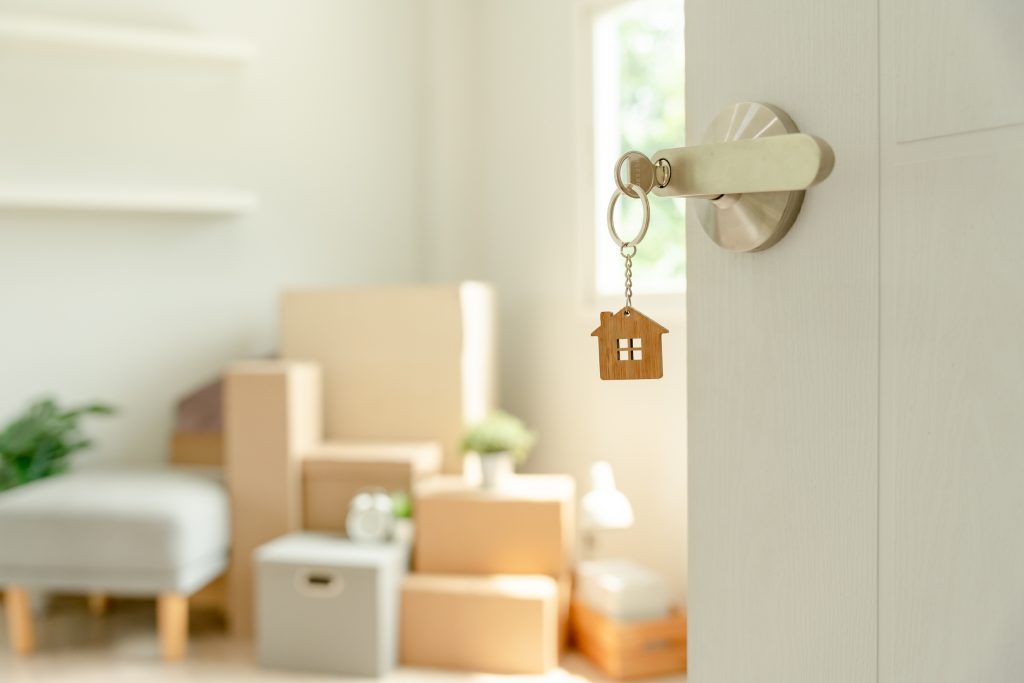
Securing Your New Home
Security is paramount when settling into a new home. Here are the first steps to ensuring your new place is safe and sound:
1. Change the Locks: You never know who has a copy of the keys. Changing the locks on all exterior doors is a top priority. Consider installing deadbolts if they aren’t already in place.
2. Install or Check Smoke Detectors: Ensure there are smoke detectors in key areas of your home, especially near bedrooms and in the kitchen. Test them to make sure they’re working, and replace batteries if necessary.
3. Carbon Monoxide Detectors: Similarly, install or check carbon monoxide detectors, particularly if you have gas appliances. These are lifesavers in preventing CO poisoning.
4. Get to Know Your Neighbours: Introducing yourself to your neighbours isn’t just a friendly gesture—it’s a smart security move. Neighbours can keep an eye on your place and alert you to any suspicious activity.
Taking these steps not only secures your home but also contributes to a safer environment for you and your family as you start this new chapter.
Cleaning and Organising
Before you’re fully settled, taking the time to clean and organize your new space can make all the difference. Here’s how to approach it:
1. Deep Clean Before Unpacking: If possible, give your new home a deep clean before the boxes are unpacked. Focus on kitchens and bathrooms first. If you’re pressed for time or prefer a professional touch, consider hiring a cleaning service.
2. Plan Your Space: Before you start placing furniture and unpacking all boxes, take a moment to plan each room’s layout. It’s easier to move things around now than after everything is unpacked.
3. Organise As You Unpack: Unpack room by room, and organise as you go. It’s tempting to just get everything out of the boxes, but taking a little extra time now saves you from living in clutter later.
Cleaning and organising your new home not only makes it more comfortable but also helps in reducing stress, allowing you to enjoy your new surroundings fully.
Address Change and Local Registrations
Getting your address updated and handling local registrations are crucial steps in making your new place officially ‘home’. Here’s what to prioritise:
1. Update Your Address: Start with the essentials – notify the post office of your address change for mail forwarding. Then, update your address with banks, employers, insurers and any subscription services to ensure you don’t miss important communications.
2. Local Government Registrations: If you’ve moved to a new city or county, you’ll likely need to register with the local government for services like waste collection. Check their website or give them a call to find out what’s required.
3. Update Electoral Registration: Make sure you’re registered to vote in your new area. It’s not just about exercising your democratic rights; in some places, it can also affect your credit rating.
4. Vehicle Registrations and Driver’s License: Don’t forget to update your vehicle registration and driver’s license if you’ve moved to a new state or country. There are usually set time frames in which to do this, so check the local regulations promptly.
Taking care of these tasks early not only helps in avoiding penalties or missed bills but also aids in integrating into your new community more quickly.
After all that?
Now, you can put your feet up, get the kettle on, relax, and prepare yourself for the housewarming party….


